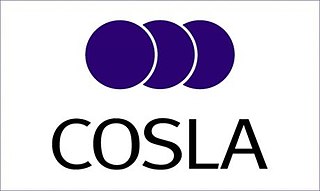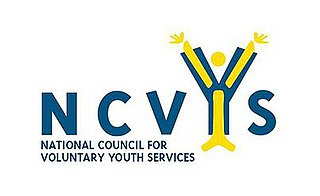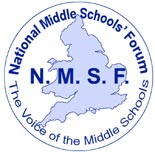Home education in the United Kingdom of Great Britain and Northern Ireland is often termed "elective home education" ("EHE") to signify the independent nature of practice from state provisions such as education for children with ill-health provided by the local authority in the family home. EHE is a collective term used in the UK to describe education provided other than through the schooling system. Parents have a duty to ensure their children are educated but the education legislation in England and Wales does not differentiate between school attendance or education otherwise than at school. Scots education legislation on the other hand differentiates between public (state) school provision and education "by other means", which includes both private schooling and home education. The numbers of families retaining direct responsibility for the education of their children has steadily increased since the late 1970s. This increase has coincided with the formation of support groups such as Education Otherwise. Home education may involve an informal style of education described as unschooling, informal learning, natural or autonomous learning. Others prefer to retain a structured school at home approach sometimes referred to as homeschooling although the terms are often interchanged.
The eleven-plus (11+) is a standardised examination administered to some students in England and Northern Ireland in their last year of primary education, which governs admission to grammar schools and other secondary schools which use academic selection. The name derives from the age group for secondary entry: 11–12 years.

Education in England is overseen by the Department for Education. Local government authorities are responsible for implementing policy for public education and state-funded schools at a local level. State-funded schools may be selective grammar schools or non-selective comprehensive schools. All state schools are subject to assessment and inspection by the government department Ofsted. England also has private schools and home education; legally, parents may choose to educate their children by any suitable means.
The Tripartite System was the arrangement of state-funded secondary education between 1945 and the 1970s in England and Wales, and from 1947 to 2009 in Northern Ireland. It was an administrative implementation of the Education Act 1944 and the Education Act 1947.
This article provides an overview of education in Wales from early childhood to university and adult skills. Largely state-funded and freely accessible at a primary and secondary level, education is compulsory for children in Wales between ages 5-16 years old. It differs to some extent in structure and content to other parts of the United Kingdom, in the later case particularly in relation to the teaching of the Welsh language.
The education system in Northern Ireland differs from elsewhere in the United Kingdom, but is similar to the Republic of Ireland in sharing in the development of the national school system and serving a similar society with a relatively rural population. A child's age on 1 July determines the point of entry into the relevant stage of education in the region, whereas the relevant date in England and Wales is 1 September.

A state school, public school, or government school is a primary or secondary school that educates all students without charge. They are funded in whole or in part by taxation and operated by the government of the state. State-funded schools are global with each country showcasing distinct structures and curricula. Government-funded education spans from primary to secondary levels, covering ages 4 to 18. Alternatives to this system include homeschooling, private schools, charter schools, and other educational options

A comprehensive school is a secondary school for pupils aged 11–16 or 11–18, that does not select its intake on the basis of academic achievement or aptitude, in contrast to a selective school system where admission is restricted on the basis of selection criteria, usually academic performance. The term is commonly used in relation to England and Wales, where comprehensive schools were introduced as state schools on an experimental basis in the 1940s and became more widespread from 1965.

A secondary modern school is a type of secondary school that existed throughout England, Wales and Northern Ireland from 1944 until the 1970s under the Tripartite System. Schools of this type continue in Northern Ireland, where they are usually referred to as secondary schools, and in areas of England, such as Buckinghamshire, Lincolnshire and Wirral,.
In England, Wales and Northern Ireland, school governors are the overseers of a school. In state schools, they have three main functions:

The Convention of Scottish Local Authorities (COSLA) is the national association of Scottish councils and acts as an employers' association for its 32 member authorities.

Three-tier education refers to those structures of schooling, which exist in some parts of England, where pupils are taught in three distinct school types as they progress through the education system.

Community education, also known as Community-Based Education or Community Learning & Development, or Development Education is an organization's programs to promote learning and social development work with individuals and groups in their communities using a range of formal and informal methods. A common defining feature is that programmes and activities are developed in dialogue with communities and participants. The purpose of community learning and development is to develop the capacity of individuals and groups of all ages through their actions, the capacity of communities, to improve their quality of life. Central to this is their ability to participate in democratic processes.
The history of education in England is documented from Saxon settlement of England, and the setting up of the first cathedral schools in 597 and 604.
Special educational needs (SEN), also known as special educational needs and disabilities (SEND) in the United Kingdom refers to the education of children who require different education provision to the mainstream system.
A voluntary aided school is a state-funded school in England and Wales in which a foundation or trust contributes to building costs and has a substantial influence in the running of the school. In most cases the foundation or trust owns the buildings.

The National Council for Voluntary Youth Services (NCVYS) was a membership network of over 200 voluntary and community organisations, as well as local and regional networks, that work with and for young people across England. The organisation closed in 2016. For 80 years, NCVYS acted as an independent voice of the voluntary and community youth sector, working to inform and influence public policy, supporting members to improve the quality of their work, and also raising the profile of the voluntary and community sector's work with young people.

English state-funded schools, commonly known as state schools, provide education to pupils between the ages of 3 and 18 without charge. Approximately 93% of English schoolchildren attend such 24,000 schools. Since 2008 about 75% have attained "academy status", which essentially gives them a higher budget per pupil from the Department for Education.

A comprehensive school, or simply a comprehensive, typically describes a secondary school for pupils aged approximately 11–16 or 11–18, that does not select its intake on the basis of academic achievement or aptitude, in contrast to a selective school system where admission is restricted on the basis of selection criteria, usually academic performance. In England and Wales comprehensive schools were introduced as state schools on an experimental basis in the 1940s and became more widespread from 1965. They may be part of a local education authority or be a self governing academy or part of a multi-academy trust.










